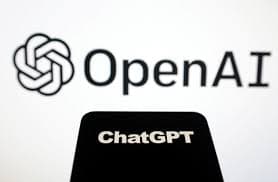
NY Judge Rejects OpenAI Bid to Dismiss Part of US Authors' Copyright Lawsuit
Judge rules authors can pursue claims that ChatGPT outputs may infringe on their copyrighted works.
A New York federal judge has rejected OpenAI’s early attempt to dismiss claims by a group of authors alleging that text generated by its artificial intelligence chatbot, ChatGPT, infringes their copyrights.
US District Judge Sidney Stein said that the authors may be able to demonstrate that the text produced by ChatGPT is sufficiently similar to their work to constitute copyright infringement.
Stein did not address the central allegation in the authors’ proposed class action lawsuit, which claims that their copyrights were violated when OpenAI used their works to train its artificial intelligence systems. Microsoft-backed OpenAI and other technology companies argue that the use of copyrighted material for AI training is permissible under the ‘fair use’ doctrine of US copyright law.
Spokespeople and lawyers for OpenAI did not immediately respond to requests for comment on Tuesday’s ruling. The authors’ lawyer, Justin Nelson of Susman Godfrey, also declined to comment.
The case forms part of a growing wave of high-stakes copyright litigation against AI-focused technology companies, including OpenAI, Microsoft and Meta Platforms. In August, Anthropic agreed to settle a class action concerning its use of authors’ works in AI training for $1.5 billion.
The New York lawsuit consolidates cases brought against OpenAI by authors including Ta-Nehisi Coates, John Grisham, George R.R. Martin and comedian Sarah Silverman. On Monday, Stein allowed the authors to continue pursuing claims that OpenAI’s large language models generate copyright-infringing material in response to user prompts.
Stein rejected OpenAI’s argument that no reasonable jury could find its outputs sufficiently similar to the authors’ works to amount to infringement. The judge cited a ChatGPT-generated summary of Martin’s A Game of Thrones, noting that it “conveys the overall tone and feel of the original work by parroting the plot, characters, and themes.”
For any enquiries please fill out this form, or contact info@thelawreporters.com and Follow The Law Reporters on WhatsApp Channels